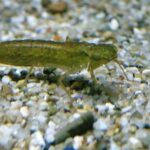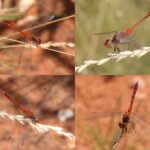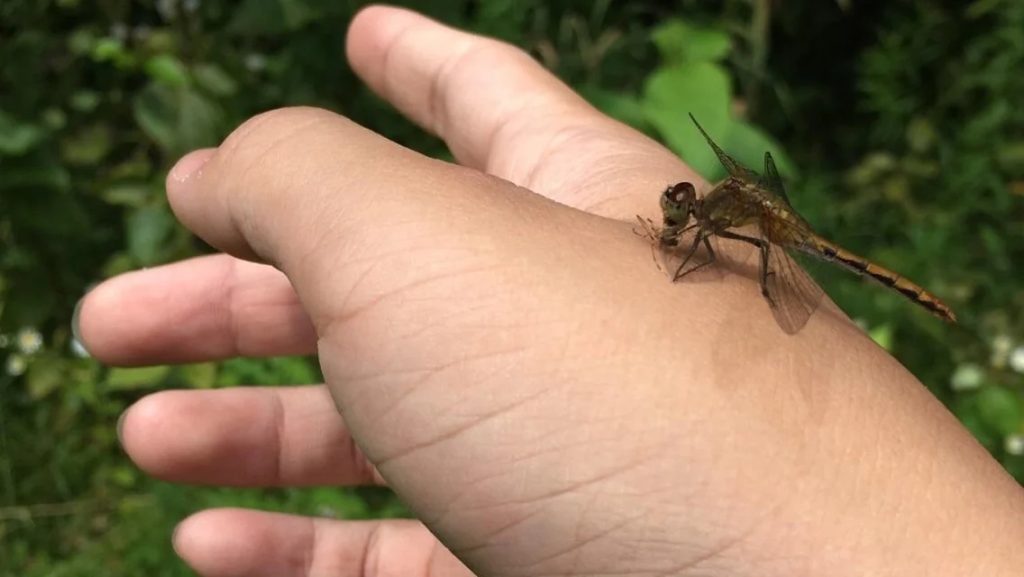
What happens if a dragonfly bites you?Are dragonflies dangerous?
In truth dragonflies are harmless to humans – unless you force your finger into their mouth. A large golden-ringed dragonfly once gave my father’s finger a bloody nip as he held it for me to photograph.
But dragonflies certainly can’t sting you, and they won’t bite you unless severely provoked. If you leave them alone, they’ll leave you alone, and you can sit back and watch these beautiful insects dazzle you with their hunting flights.
Do dragonflies bite?
Dragonflies do bite, and they will bite humans, but only if you catch one and it’s trying to escape or defend itself. And only the largest dragonflies will be able to break your skin anyway.
Dragonflies have large, powerful jaws and are ferocious airborne predators, catching flying prey in a basket-like gantry of legs and dispatching it with a single crunch. Their large size, bright colours and rapacious behaviour can make them seem threatening, hence nicknames such as devil’s darning needle and horse-stinger.
Do Dragonflies Bite?
Dragonflies capture their food by biting and have sharp, pointed jaws, which they use to eat small insects. They’re not dangerous to humans. When a dragonfly lands on you, it won’t bite you.
But if you catch a dragonfly and carelessly hold it in your hand, its jaws can reach your skin. The dragonfly may bite you in self-defense. Their bite may startle or hurt you a little. But very few dragonflies bite hard enough to break your skin and cause bleeding. Even if a dragonfly bites you, there’s no danger because the insect bite is very small.
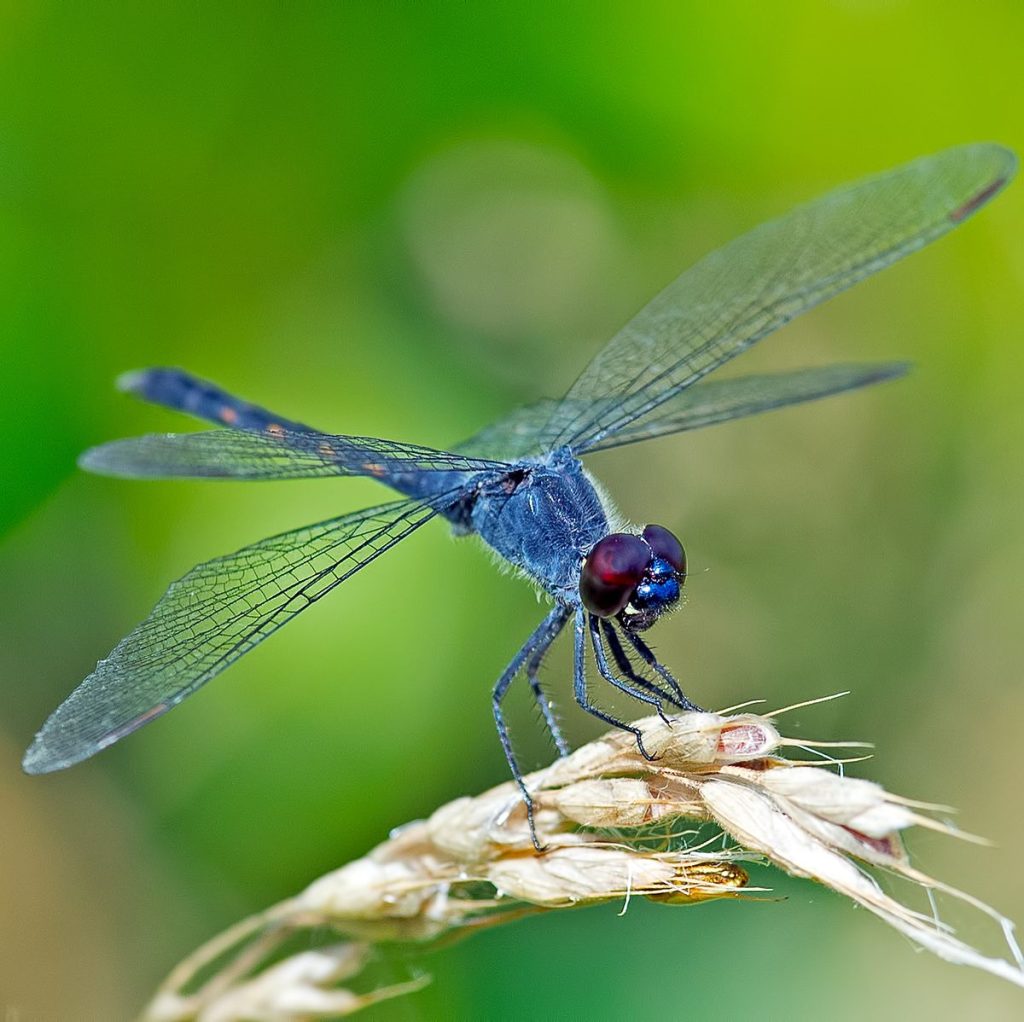
Do Dragonflies Sting?
Dragonflies don’t sting like bees. But if you interrupt egg-laying dragonflies, they may lay their eggs in your clothing or even flesh. Some researchers have reported that loosely held dragonfly larvae move their abdomen from side to side. This motion causes their pointed spines to insert into the researchers’ flesh. But this happens only because the insect is trying to protect itself.
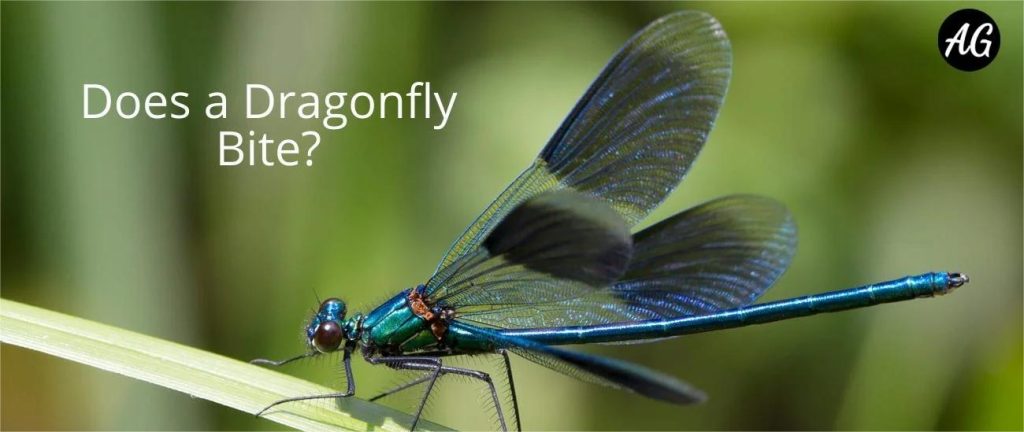
Do dragonflies bite or sting?Do dragonflies bite?
The simple answer is NO. The full answer to this question has three parts:
(i) “Do dragonflies bite?” YES, dragonflies bite, because that’s how they capture their food. They have impressive, sharply pointed mandibles that chomp down on the smaller insects they catch.
(ii) “Do dragonflies bite people?” YES, if you catch one and hold it in your hand and carelessly allow its mandibles to reach your skin, it will bite as hard as it can in self defense. Very few dragonflies can even break the skin, but some of the big ones can do so and may induce an “ouch”. They’re certainly no danger to you, as the biggest dragonfly has a relatively small bite. A word of warning though: if, for some educational reason, you plan to let a dragonfly bite you, make sure you don’t suddenly pull back, as you’ll probably pull its head off and this is not a good example to present your audience!
(iii) “Do dragonflies bite people spontaneously?” A big resounding NO. A dragonfly would never land on someone and bite.
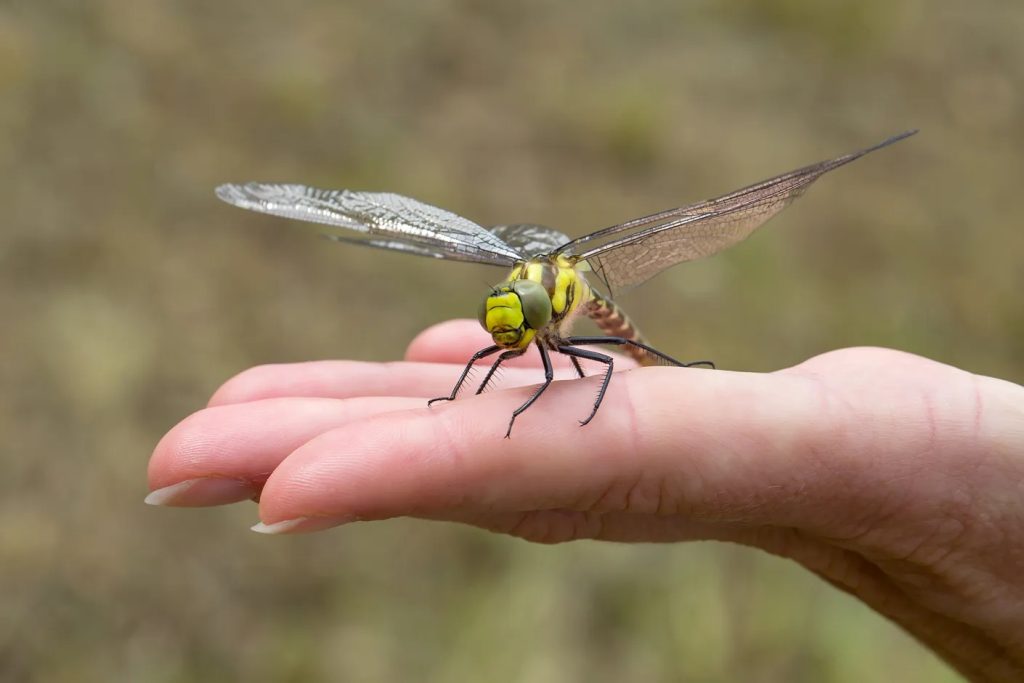
Do dragonflies sting?
The simple answer to this is NO – they have no ‘sting’ as such. BUT there have been a number of accounts of egg-laying dragonflies that, when interrupted, continued the operation into the flesh or clothing of examining odonatists. Such actions could well be the origins of the many “old wives tales” pertaining to stinging dragonflies, and could also provide the answer as to why odonates have the names of ‘Horse-stingers’ and ‘Devil’s Darning Needles’. These names, and others like them, are part of dragonfly folk-lore in many parts of the world.
Do dragonfly larvae bite or sting?
Again basically, despite their ferocious appearance, dragonfly larvae do not harm people. However, late-instar larvae of larger species can use their mandibles to take a nip at an intrusive odonatist’s finger to give a noticeable poke. Cases have also been reported of loosely held larvae ‘stinging’ a researcher by turning its abdomen from side to side and inserting the sharply-pointed lateral spines into the intruder’s flesh.

